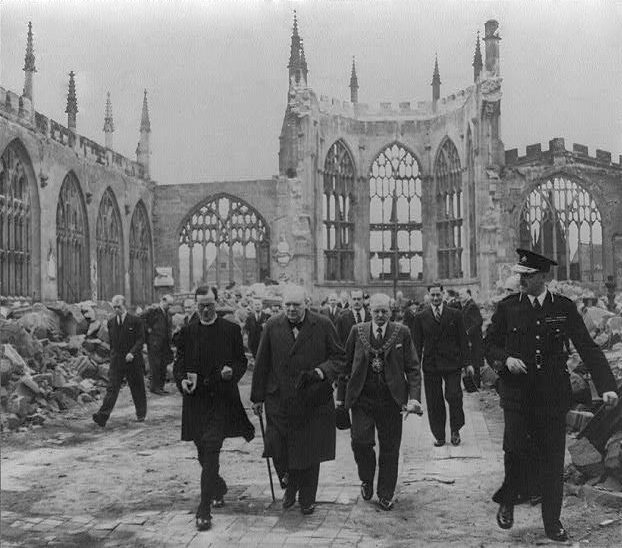This week in 1938, Winston Churchill delivered one of the most remarkable speeches of the twentieth century, his condemnation of the Munich Agreement. In this agreement, British Prime Minister Neville Chamberlain had agreed to allow Adolf Hitler’s Germany to annex the Sudetenland, a German-dominated province of Czechoslovakia. Hitler had already revealed his hatred for the Jews and his imperial ambitions in Europe. But Chamberlain believed that conceding to Hitler’s demands could help avert another cataclysmic European war like the one that ravaged the continent two decades earlier. (FDR privately condemned Chamberlain’s weakness, but publicly assured Hitler that the U.S. had no plans to intervene.)
In retrospect, it is easy to see how wrong Chamberlain was. But few saw the implications of Munich with more clarity than Churchill, the future Prime Minister. “We have sustained a total and unmitigated defeat,” Churchill thundered in Parliament on October 5. Chamberlain wanted to maintain peace between the people of Britain and Germany. But to Churchill, this worthy goal was beside the point. There could be no peace with the Nazis.
The Prime Minister desires to see cordial relations between this country and Germany. There is no difficulty at all in having cordial relations between the peoples. Our hearts go out to them. But they have no power. Never will you have friendship with the present German Government. You must have diplomatic and correct relations, but there can never be friendship between the British democracy and the Nazi power, that power which spurns Christian ethics, which cheers its onward course by a barbarous paganism, which vaunts the spirit of aggression and conquest, which derives strength and perverted pleasure from persecution, and uses, as we have seen, with pitiless brutality the threat of murderous force. That power cannot ever be the trusted friend of the British democracy.
Citing Daniel 5:27, Churchill then issued one of the most stinging indictments of modern political history.
We have sustained a defeat without a war, the consequences of which will travel far with us along our road; they should know that we have passed an awful milestone in our history, when the whole equilibrium of Europe has been deranged, and that the terrible words have for the time being been pronounced against the Western democracies:
“Thou art weighed in the balance and found wanting.”
And do not suppose that this is the end. This is only the beginning of the reckoning. This is only the first sip, the first foretaste of a bitter cup which will be proffered to us year by year unless by a supreme recovery of moral health and martial vigour, we arise again and take our stand for freedom as in the olden time.
